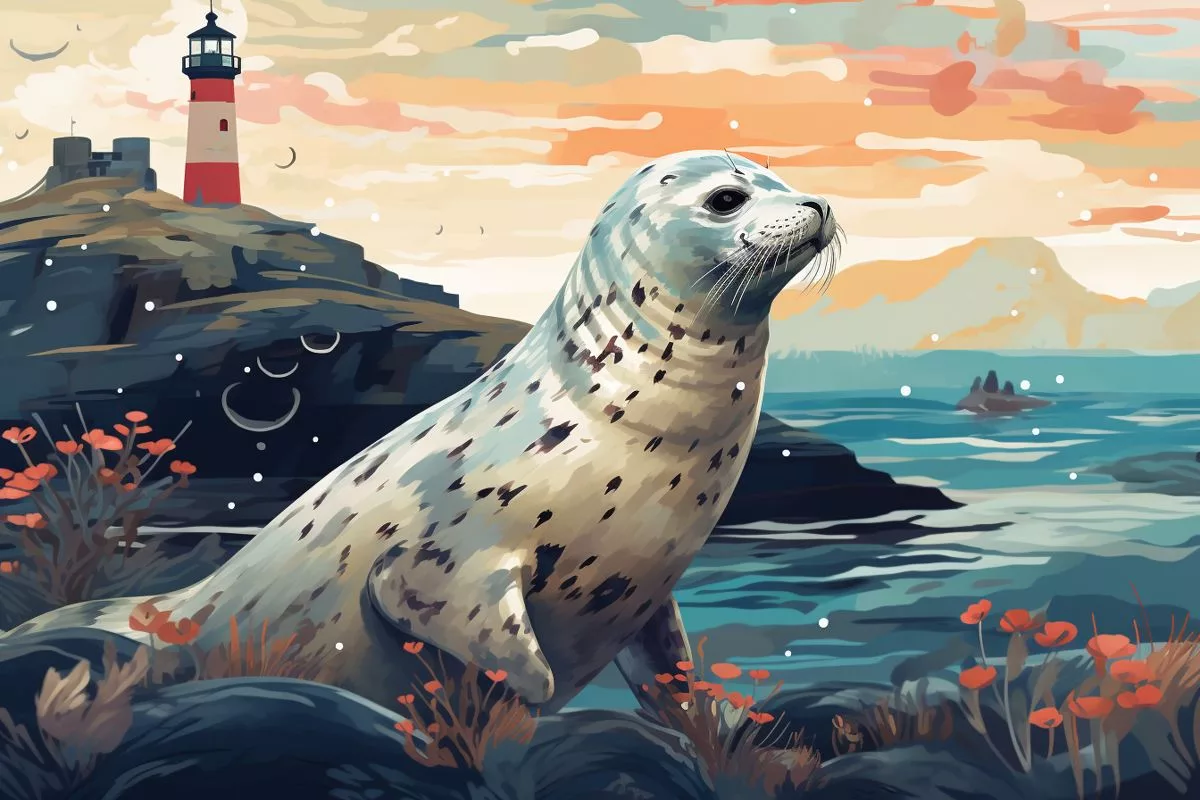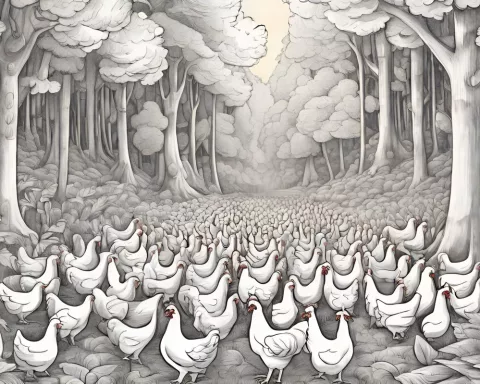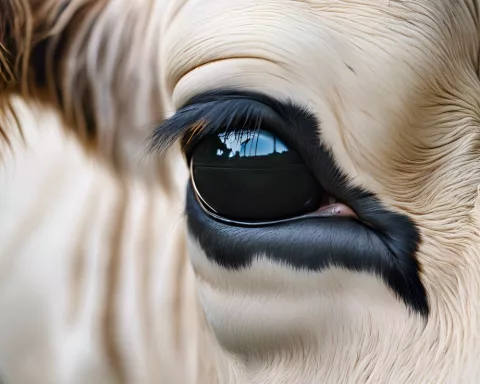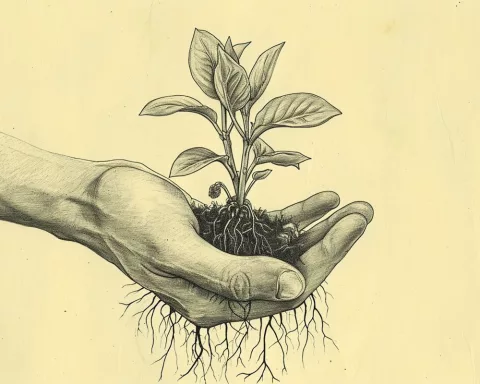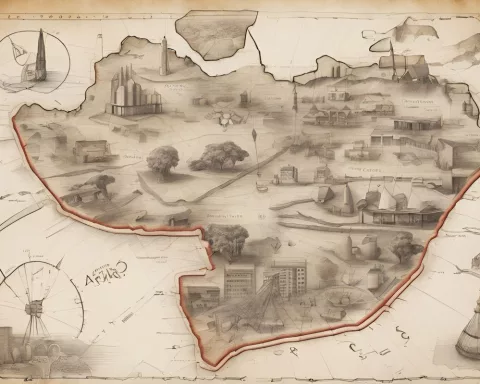Cape Town’s Hout Bay harbor is being transformed by a movement against the cruel and illegal exploitation of seals for financial profit. The initiative involves strict regulations and penalties, including on-the-spot fines of up to R3000 for any act that disturbs the seals’ natural behavior. Public awareness and cooperation are necessary to eliminate the incentive for those who mistreat, train, and feed wild seals, ensuring a safer, more natural environment for them and a more ethical tourism experience for visitors.
Efforts to Eradicate Inhumane Acts: Cape Town’s Seal Protection Initiative
– Strict regulations and penalties have been implemented to combat the illegal and cruel exploitation of seals for financial profit in Hout Bay harbor, Cape Town.
– Any act that disturbs the seals’ natural behavior, such as feeding or harassing them, is considered a criminal offense and can result in an on-the-spot fine of up to R3000.
– Public awareness and cooperation are necessary to eliminate the incentive for those who mistreat, train, and feed wild seals, ensuring a safer, more natural environment for them and a more ethical tourism experience for visitors.
Hout Bay Harbour: A Beacon for Change
The unspoilt harbour of Hout Bay in Cape Town, cherished by tourists and residents alike, has recently transformed into an arena for a significant movement – the battle against the unlawful and inhumane treatment of the harbour’s resident seals. In a courageous initiative for animal rights, Cape Town’s city administration, the Department of Forestry, Fisheries, and Environment (DFFE), among other stakeholders, have collaborated with a shared aim: to put a stop to the illegal, destructive and cruel exploitation of these seals for financial profit.
This combined initiative is a reaction to the rising apprehensions of uninformed tourists seduced into illicit behaviours, such as feeding and habituating seals. Habituating refers to the process wherein wild animals grow dangerously accustomed to human activities and presence. This manner of interaction results in a disturbing and unnatural atmosphere that endangers the seals’ health and compromises the fragile equilibrium of the harbour’s ecosystem.
The City’s Stance: Strict Regulations and Penalties
The authorities have issued a stern warning to all public members, tour operators, guides, and harbour visitors. Any act that disturbs the seals’ natural behaviour, such as feeding, approaching, harassing or upsetting these marine animals, is considered a criminal offense. These actions are forbidden under the Threatened or Protected Marine Species Regulations and also violate the City’s Coastal By-Law.
The repercussions of such behaviour are harsh. Transgressors may be arrested and face criminal charges. Moreover, activities like paying someone to feed a seal, make them perform tricks, or pose for pictures with a seal, or being within 5 metres of a seal could lead to an on-the-spot fine of up to R3000, in accordance with the City’s Coastal By-law.
The Battle Continues: Persistent Illegal Activities and a Call for Public Cooperation
Regrettably, despite the efforts of authorities and the Society for the Prevention of Cruelty to Animals (SPCA) to deter these practices, the illegal feeding and habituating of seals persist. A recent operation which involved capturing and relocating five habituated seals from Hout Bay harbour to Kleinsee in the Northern Cape has not dissuaded these activities, underlining the pressing necessity for public awareness and cooperation.
Eddie Andrews, Deputy Mayor and Mayco Member for Spatial Planning and Environment, has issued a strong message to the public and visitors. His plea is simple, yet powerful: “We ask for responsible tourism that respects and appreciates our coastal wildlife from a safe and respectful distance, without interfering with the animals at all times.”
Andrews’ statement embodies the core of the fight against seal maltreatment in the Hout Bay harbour. It emphasizes the need for a collective effort, where each visitor, local or tourist, can contribute to protecting these creatures and their habitat. This battle is not only against the abuse and cruelty that seals suffer during training but also against the disregard for wildlife and natural habitats.
The struggle to combat seal maltreatment encompasses not just law enforcement agencies and environmental bodies, but every individual who visits the Hout Bay harbour. By eliminating the incentive for those who mistreat, train, and feed wild seals, the cycle can be broken. A shift in public behaviour and a conscious commitment to respect wildlife can aid in the termination of these cruel practices, ensuring a safer, more natural environment for the seals and a more ethical tourism experience for visitors.
What is the Seal Protection Initiative in Hout Bay?
It is a movement against the cruel and illegal exploitation of seals for financial profit in Hout Bay harbor, Cape Town, involving strict regulations and penalties, including on-the-spot fines of up to R3000 for any act that disturbs the seals’ natural behavior.
What actions are considered criminal offenses?
Any act that disturbs the seals’ natural behavior, such as feeding, approaching, harassing, or upsetting these marine animals, is considered a criminal offense and is forbidden under the Threatened or Protected Marine Species Regulations and the City’s Coastal By-Law.
What are the penalties for illegal actions?
Illegal actions such as feeding or harassing seals can result in an on-the-spot fine of up to R3000, and transgressors may be arrested and face criminal charges.
Why is public awareness and cooperation necessary?
Public awareness and cooperation are necessary to eliminate the incentive for those who mistreat, train, and feed wild seals, ensuring a safer, more natural environment for them and a more ethical tourism experience for visitors.
How can visitors contribute to seal protection?
Visitors can contribute to protecting seals and their habitat by practicing responsible tourism that respects and appreciates coastal wildlife from a safe and respectful distance, without interfering with the animals at all times.
What is the goal of the battle against seal maltreatment in Hout Bay harbor?
The goal is not only to combat the abuse and cruelty that seals suffer during training but also to promote respect for wildlife and natural habitats. The aim is to eliminate the incentive for those who mistreat, train, and feed wild seals, ensuring a safer, more natural environment for the seals and a more ethical tourism experience for visitors.

